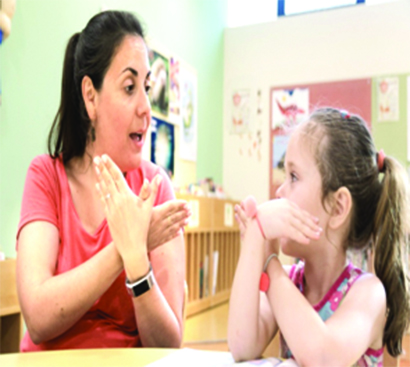 M Ahmad M Ahmad
8th March 2021 shall be celebrated as “International Women’s Day” globally. Most of the Organizations or Associations shall Organise seminars and other functions celebrating women’s achievements in the social, economic, cultural, political and other spheres.
Our concern is no one recognize the services of women who fight with their difficulties to educate & care their “Children With Disabilities”. We know how these women take care of their Specially-abled children as this Institution deals with these children and their parents. Even some women have more than two such Children in their families but they silently struggle to care & educate them. No one knows about their services.
There are about 25.8 million persons with disabilities in India, which is around 2.2 per cent of the total survey estimate of the population.
According to the NSS survey 2018, spouse provides around 30.74 per cent of the care-giving services to PWDs, mothers 26.47 per cent, daughters-in-law 10.54 per cent, daughters 4.16 per cent, hired care-givers 0.60 per cent, institutional care-givers 0.36 per cent. More than 65 per cent of care-givers are women. The service, which is generally unpaid and voluntarily given to disabled children. In most cases, the contributions of these caregiver women go unnoticed. For those women looking after a disabled child, care is a 24/7 reality. Yet they don’t want sainthood, but just a secure future for their child. Women are one of the most influential social structures in society, which shape educational aspirations and career choices of children with disabilities throughout their life course. For this noble work they also have to cope with significant emotional, social, physical and financial pressures. This circumstance can increase stress and health problems in these women. When a woman needs to hold an ordinary job, in addition to caring for their children with special needs, the situation becomes precarious.
The daily routines and time organization are adjusted to those of their children with disabilities: school, home, transport to rehabilitation center, therapy, speech therapy, return to the home, home tasks, bath etc. Caring for a child with disability implies the mother’s giving up both work and other satisfying activities such as leisure activities.
But especially, the daily involvement in care tasks makes mothers pay little attention to their own care, since care for others takes priority over self-care:
Whilst much is known & done about the difficulties and challenges of Children With Special Needs but very little is known about the needs & difficulties of care taker women (mothers) of these Specially-abled children. We salute silent services of these women. |
